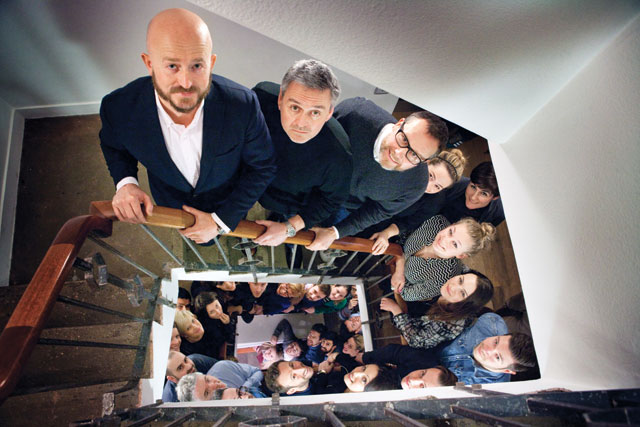
Thursday morning breakfasts might just be the most important idea we've had since we launched The Corner. We started them two-and-a-half years ago, when there were five of us in a pokey little office on Beak Street. We still do them now, with 40 of us, in our relatively swanky new offices in Richmond Mews. And we'll still be doing them in five years' time, when there are 250 of us in some big, old unit somewhere.
If you were watching, you wouldn't think they were particularly important. What we do is sit down, have breakfast and wait for people to talk about whatever is on their mind. We talk about different stuff every week: an idea we've seen from another agency that we're jealous of. Or not, as the case may be. A new gadget or piece of software. A bit of gossip from the industry. What happened last night at The Dog and Duck. What's working. What isn't.
But, importantly, everyone talks. And nothing is off-limit. Unless it feels like everyone can tell the truth, it doesn't work. So, as a partner, it's important to keep any sense of hierarchy out of the room. Sometimes the discussion is easy; occasionally, quite uncomfortable. It can feel a bit like Prime Minister's Questions. But they are worth it, because they set the rules of engagement for everything else we do.
We founded The Corner as a "collaboration of advertising, technology and culture", with the emphasis being on collaboration. And, although we're still relatively small, we have talented people drawn from different industry silos, working together under one roof. Our task, as partners, is a simple one: to create a culture in which these talented people are free to work together at their best.
Creativity is no longer the mysterious solo act of years gone by. It's now about a large number of people, from different disciplines, working effectively together to solve a great many problems. As partners, we have to resist our instincts to control; or to implant too much process; or to avoid or minimise risk. These instincts will not only frustrate talented people, but will lead us, as an agency, to follow well-trodden paths and fail to innovate; an industry complexion that probably goes some way to explaining why so many brands feel so much alike.
A recent report said only 8 per cent of people see a real difference in the advertising of competing brands; that most people would be happy if four out of five brands disappeared tomorrow; and that only 5 per cent of people believe that brands make a noticeable, positive contribution to their lives. Our opportunity at The Corner is to point people towards the future and set them free, not to limit or control them. Clearly, this isn't something we can just mandate - it's something we have to nurture through culture.
So every Thursday morning we remind each other that no single one of us has all the answers; and that none of us is as smart as all of us. That it's safe for everyone to offer ideas; and that, collectively, all of us have to constantly search for the flaws that could destroy our vision and, more importantly, our culture.
And when we walk out of breakfast and into another room to discuss Adidas or Coca-Cola or Fox or London Pride, we have an innate and transferable blueprint for how we are going to set about making things happen. We will look for a problem and a purpose, and find a way to make something new and different happen - something that is based on innovative thinking, and not precedent or process.
There are no "proper" channels to go through, and there never will be. Everyone must be able to talk to each other, about whatever needs to be discussed, whenever it needs to be discussed. Steve Jobs put the toilets at the centre of Pixar because he saw that the magic happens by chance, in accidental conversations. And we have to give that magic every chance of happening.
There is a view that too much conversation can be a bad thing, but we know where we stand on that. Imagine, in the day-to-day speed of our industry, needing to "book some time in" with your creative partner to discuss a live issue - and getting a slot next Tuesday. Imagine that.
Neil Hourston is the chief strategy officer at

